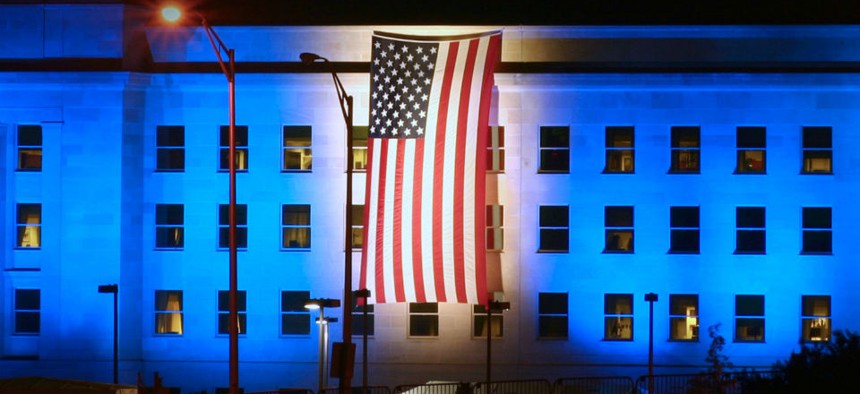
Douglas Litchfield/Shutterstock.com
Reflections on 9/11 and Excellence in Government
Lives changed when the plane hit the Pentagon, and so did government.
As we paused last week to remember the tragic events of Sept. 11, 2001, I am reminded of how that event changed so much of our history—including impacting how government moved forward to manage technology and people who care deeply about serving the American people, and working with our international partners to do the same. We learned important lessons on that day, which have carried forward since and will long into the future.
First, a reflection of events from Sep 11, 2001: I was the career deputy adviser on information technology and e-government issues at the Office of Management and Budget. On that day, our office was working closely with the Council for Excellence in Government to host a meeting of international IT leaders—one of the early meetings of chief information officers and equivalent executives from multiple countries, done in partnership with the council. CEG for many years led government, industry, academia, nonprofit and citizen groups generally on technology and management excellence initiatives.
After the plane hit the Pentagon, OMB quickly evacuated its building, as did much of downtown Washington. I recall with great clarity the thousands of people walking in the street, unsure about where to go, having difficulty reaching their families.
I walked over to CEG’s offices at 14th and K Streets, knowing that there might be a need for help getting the international IT executives settled on a day that there was clearly not going to be a discussion about cross-border collaboration on e-government. I met with meeting participants Bill Eggers, IT adviser to the George W. Bush administration, and Canadian CIO Michelle D’Auray. We walked to Canada’s embassy at 4th and Pennsylvania, reasoning that home embassies were the safest place for our guests to stay that day.
The embassy is near the Labor Department, and while trying to figure a way home I ran into the department’s CIO, who explained all the steps DOL was taking to ensure continuity of key operations that day and in the days to follow. The next day, Mark Forman, OMB’s associate director for IT and e-government, led a meeting of senior officials to select e-gov initiatives for review by the President’s Management Council. Among those initiatives, two that clearly emerged as key were Disaster Management (a portal to help emergency responders provide information and collaborate in the event of a crisis) and Project SAFECOM (an initiative to build interoperability into wireless networks used by public safety officials at all levels of government).
Many of us in Washington, and many of our friends and colleagues whose lives were changed tragically by the events of that day, could no doubt recount similar narratives. I share my experience both as a reflection, but also to note some important elements of those events that continue to inspire leaders who work in and with government to carry out key missions through technology and management excellence. To identify just a few:
- While the CEG meeting did not take place on Sept. 11, the international collaboration among IT leaders across nations has continued and expanded. Initiatives range from North America Day, which brings together CIO teams from the United States, Canada and Mexico; to OECD meetings of key ministers from dozens of nations; to numerous multilateral and bilateral exchanges led and joined by OMB, the General Services Administration and other key U.S. leaders.
- Continuity of government has become a major focus of CIO offices and other key agency teams, led by new programs implemented through the Homeland Security Department.
- Cross-agency e-government initiatives were codified in the 2002 E-Government Act, which helped solidify Disaster Management and SAFECOM as well as the programs that they have since evolved into.
- Although CEG no longer operates, many of its programs to promote government excellence have continued through good government groups like the Partnership for Public Service (@rpublicservice). Interestingly, the Partnership and the IBM Center for the Business of Government will soon embark on an initiative to think about how to carry forward strong management in a way that best serves agency missions. In an interesting update on my own story from that day, we at the IBM Center recently met with Bill Eggers, who is now with Deloitte and still advocating innovative ideas for how government can move forward in the digital age.
We are fortunate to live in a nation that meets crises with resolve and determination to move forward. We are also fortunate that there are individuals who work in and with government that dedicate their talent and time to promote excellence in government—even amid crises—work with international partners, and continually enhance the effectiveness of their programs and agencies in serving citizens.
Dan Chenok is executive director at the IBM Center for the Business of Government.
(Image via Douglas Litchfield/Shutterstock.com)






